Keynote speakers


Albena Daskalova
Institute of Electronics, Bulgarian Academy of Science
Albena Daskalova has an expertise on ultra-fast laser material processing for diverse applications in tissue engineering. She is an associate professor at laboratory of “Non- linear and fiber Optics”, Institute of Electronics-Bulgarian Academy of Sciences (BAS), since 2019. Currently she is a head of newly formed Femtoscience application group at IE-BAS. She has obtained her PhD degree at Institute of Applied Physics in TUWIEN in 2003 and have received a Marie Curie individual grant in 2009 at Institute of Electronic Structures and Lasers- Foundation of Research and Technology (IESL-FORTH), Heraklion, Creete. Her current interests are directed towards application of laser methods for treatment of diverse biomaterials and producing matrices with enhanced surface properties for application in tissue engineering. She is a project leader and participant in numerous National and International projects funded by Bulgarian National Science Fund, Horizon Europe, Horizon 2020, Laserlab Europe and COST. She has co-authored more than 59 publications in international peer-reviewed scientific journals.
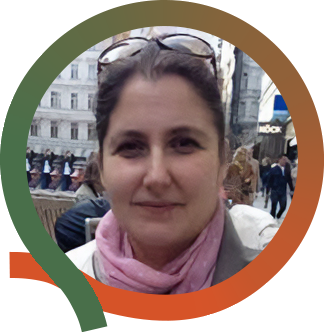
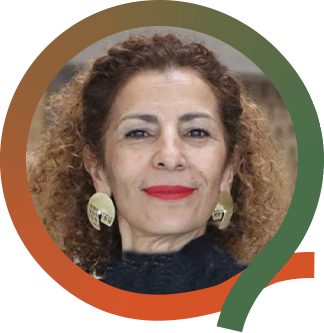
Meriem Lamghari
University of Porto, Portugal
Meriem Lamghari is Principal investigator and group Leader of NeuroSkeletal Circuits (NESK) research group at i3S and Professor at the Institute of Biomedical Sciences Abel Salazar of University of Porto. She has graduated in Cell Biology at Université Jussieu Paris 7- France and received her Ph.D. in Osteoarticular Biology, Biomechanics and Biomaterials from the same University in 1999. Her scientific path started with the study of biomaterials for vertebral bone regeneration and progressed through her postdoc at INEB (2000-2004, Portugal) where she was actively involved in project aiming to develop bioactive biomaterials for local drug delivery for bone repair in a rare disease. In 2004 she performed a second post-doc at the Garvan Institute of Medical Research (Australia). In 2009, she established her own research line focusing on neuro-skeletal cross-talks and afterwards established her own research group in 2016. To this date, she was successful in obtaining national and international funding for several projects. She is the coordinator of the H2020 RESTORE project (ref 814558) “User-centred smart 3D nanobiomaterial-based scaffold for chondral repair”. She is also partner in the H2020 FLAMIN-GO project (ref 953121) “From pathobioLogy to synoviA on chip: driving rheuMatoId arthritis to the precisioN medicine GOal” and the Horizon Europe sinPain (ref 101057778) “A game changer for the treatment of osteoarthritis: a cost effective combined advanced therapy to treat knee osteoarthritis”, the MSCA-ITN EU/H2020 BonePain II (ref 814244) “A European Training Network to combat bone pain”, the MSCA-ITN EU/H2020 PREMUROSA (ref 860462) “Precision medicine for muscoloskeletal regeneration, prosthetics and active ageing” and the HORIZON-MSCA-2022-DN-01 BonePain III (Proposal number 101120524) “Identifying mechanisms and novel treatments of bone pain – closing the gap to the clinic”. She is an active member of European networks and established national and international collaborations that resulted in several papers and awards. She is also involved in Doctoral and Post-doctoral supervision, educational activities, animal ethics, lab management and organisation of scientific meetings.
Ivan Martin
University of Basel, Switzerland
Ivan Martin is Professor at the University of Basel. He studied Biomedical Engineering at the University of Genova where he obtained his PhD in 1996. Between 1996 and 1999 he was a postdoctoral associate at Harvard/MIT. He joined the Department of Biomedicine (DBM) at the University Hospital of Basel in 1999 as leader of the Tissue Engineering Research Group, in close coordination with the surgical units. In 2007 he was appointed Professor for Tissue Engineering at the University of Basel and from 2021 he is Director of the DBM. From 2004 to 2009 he was the first president of the European section of the Tissue Engineering Regenerative Medicine International Society (TERMIS), and later Chair of the TERMIS Strategic Alliance Committee. In 2018 he was elected as member of the Swiss Academy of Medical Sciences. He is currently Chair of the ‘Mesenchymal stromal cell committee’ and member of the ‘Orthopaedics and Musculoskeletal Committee’ of the International Society for Cellular and Gene Therapy (ISCT). He is part of the editorial boards of 6 international journals. His group includes scientists from the biological, engineering and clinical fields, dedicated to develop solid scientific basis for innovative translational strategies in regenerative surgery. In this field he is author of more than 300 peer-reviewed papers on international journals (H-index of 100), inventor on 12 patent applications and recipient of grants from the main funding bodies, including the prestigious European Research Council. The developed science and technology have been translated into different clinical trials for cell-based cartilage and bone repair, and into the founding of a spin-out company for the commercialization of bioreactors for 3D cell culture (Cellec Biotek AG).
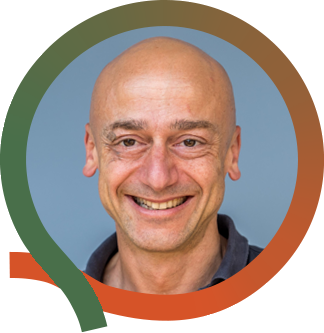
Tiziano Serra
AO Research Institute Davos, Switzerland
Tiziano Serra is Focus Area Leader at AO Research Institute Davos, Switzerland, and Assistant Professor at MERLN Institute (Maastricht University, NL).He holds an MSc in Materials Science and Engineering from the University of Salento (IT), earned his Ph.D. in 3D printing for tissue engineering from the Institute for Bioengineering of Catalonia (ES), and was a postdoctoral fellow at University College London (UK). He was the recipient of the ISBF Young Investigator Award from the International Society of Biofabrication and Julia Polak European Doctoral Award from European Society of Biomaterials. Dr Serra is the inventor of the Sound Induced Morphogenesis (SIM) technology, licensed in 2020 to mimiX Biotherapeutics, a successful Swiss start-up that he co-founded and served as Chief Scientific Officer till July 2022.
His team is using extrinsic fields-based biofabrication technologies (e.g., hydrodynamic waves, magnetic, light) and stimuli-responsive materials for repair, regeneration, and diagnostics.
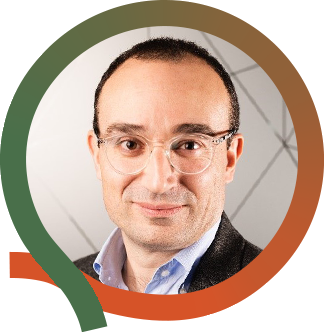
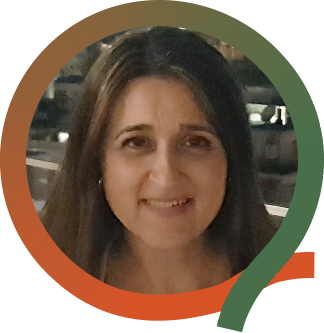
Artemis Stamboulis
University of Birmingham, United Kingdom
Gordana Vunjak-Novakovic
Columbia University, USA
Gordana Vunjak-Novakovic is University Professor, as the first engineer to receive this highest academic rank at Columbia University. She is also the Mikati Foundation Professor of Biomedical Engineering and Medical Sciences, and Professor of Dental Medicine. She directs the Laboratory for Stem Cells and Tissue Engineering, the NIH Tissue Engineering Resource Center, and Columbia’s Center for Dental and Craniofacial Research. The focus of her laboratory is on engineering functional human tissues for use in regenerative medicine and patient-specific “organs-on-chip” models of disease. From these studies, she published over 460 journal articles (62,000 citations, h=140), including those in Nature, Cell, Nature Biotechnology, Nature Medicine, Nature Biomedical Engineering, Nature Communications, Nature Protocols, Science Advances, PNAS, Cell Stem Cell, Journal of Clinical Investigation and Science Translational Medicine. She has mentored over 250 graduate students, postdocs and clinical fellows. With her trainees, she founded five biotech companies. Among her many recognitions, she was elected to nine national and international academies, including Academia Europaea, Serbian Academy of Sciences and Arts, US National Academies of Engineering, Medicine and Inventors, American Academy of Arts and Sciences, International Academy of Medical and Biological Engineering, and the Royal Society of Canada Academy of Science.
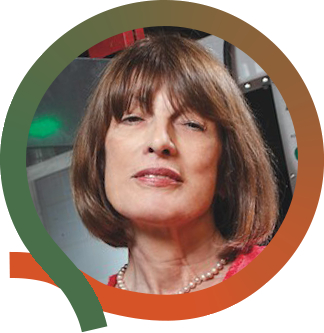
Invited AIMed session chair
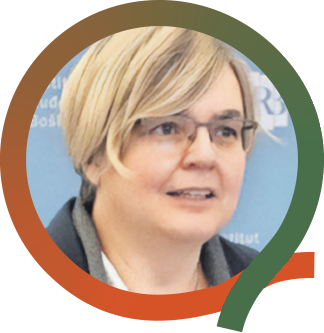
Maja Dutour Sikirić
Ruđer Bošković Institute, Croatia
Dr Maja Dutour Sikirić received her PhD from the Faculty of Sciences at the University of Zagreb in 2002. During her studies she gained experience and developed her interest in two important areas: (i) organic-inorganic interactions in crystallisation related to biomineralisation and (ii) physicochemical properties of novel gemini surfactants in aqueous solutions and in the solid state. She worked at the Casali Institute of Applied Science, The Hebrew University of Jerusalem as a post-doctoral researcher (2002 – 2004), supported by an EU project Surface Improvement of Metal Implants and a Valazzi-Pikovsky fellowship. Her work involved the development of organic-inorganic nanocomposites that can be used as coatings for prosthetic metal prosthetic implants. After returning to the Ruđer Bošković Institute, she has continued her work on organic-inorganic nanocomposite biomaterials, as well as on application of DLS in characterisation of inorganic and soft nanoparticles in various matrices relevant to biomedical applications and environmental protection. In recent years, her research has focused on investigating the influence of different types of nanomaterials on the formation of calcium phosphates with the aim of producing multifunctional materials for orthopaedic applications. This research was conducted within the framework of CSF project Mechanisms of calcium phosphates formation on inorganic nanomaterials and the MC ITN project Antimicrobial Integrated Methodologies for orthopaedic application. She is currently head of the Laboratory for Biocolloids and Surface Chemistry at the Ruđer Bošković Institute, Croatia.
Invited PREMUROSA session chair
Lia Rimondini
University of Eastern Piedmont “Amedeo Avogadro”, Italy
Lia Rimondini, DDS, Degree in Dentistry, Full Professor of Applied Medical Sciences and Technologies and Director of the Department of Health Sciences at Università del Piemonte Orientale, Novara, Italy. She is an expert in tissue engineering and in R&D of biomaterials and medical devices with anti-infective properties for regenerative medicine. She integrates technological knowledge with regulatory aspects and clinical practice with particular attention to dentistry and orthopedics. She is principal investigator and coordinator of several international research projects in the above-mentioned topics.
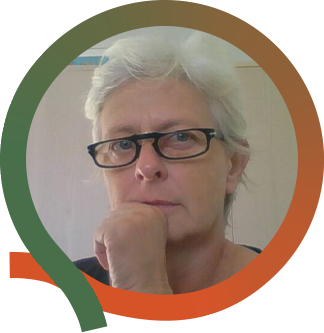
Twinning session chair
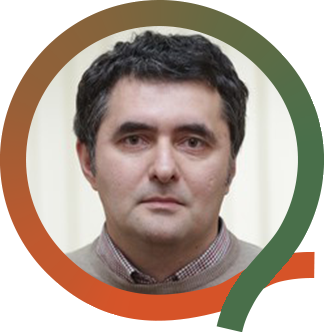
Dejan Bezbradica
Faculty of Technology and Metallurgy, University of Belgrade
Dejan Bezbradica, is Professor at the Department of Biochemical Engineering and Biotechnology, Faculty of Technology and Metallurgy, University of Belgrade (FTM) since 2018, with teaching activities within courses “Biochemistry”, “Bioseparation Engineering”, “Industrial Biotechnology” and “Selected Topics in Bioanalytical Techniques”. He graduated in 1998, obtained his Master degree in 2001, and the doctoral degree in Beiochemical Engineering and Biotechnology in 2007 at FTM. During the year 2009 he was appointed visiting scientist at the Institute of Catalysis in Madrid in the Laboratory for Enzyme Engineering supervised by Prof. Guisan. His scientific work covers following research areas: kinetic modeling of enzymatic reactions, application of enzymes in synthesis of bioactive compounds, cell and enzyme immobilization, microbial production and purification of industrial enzymes, enzymatic and fermentation processes in various types of bioreactors and development of nanobiocatalysts. Currently, he coordinates one Horizon Europe project (TwinPrebioEnz, GA 101060130) and one national scientific project (PrIntPrEnzy, Program Ideas, Science Fund of the Republic of Serbia) focused on development of enzymatic processes for production of prebiotics for food and cosmetics by using by-products of food industry as raw materials. He was mentor on 6 doctoral theses in the field of biochemical engineering and biotechnology. His scientific research resulted in 92 papers in international peer review journals that he co-authored, 3 book chapters and 3 national patent applications (h-index = 24, over 1800 citations). He acts as a reviewer for 22 international scientific journals within the areas of biochemical engineering, food engineering and biotechnology and he is a member of the Editorial board of one international scientific journal.
